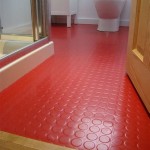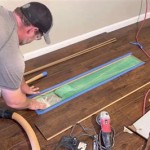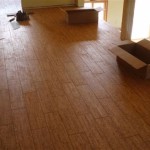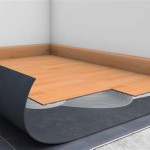What to Use to Seal a Subfloor
Preparing a subfloor for any type of flooring can be a daunting task. Making the subfloor strong and protected for your flooring is crucial and ensures longevity. Protecting the subfloor will save you hundreds, if not thousands, of dollars in repairs down the line.
Sealing a subfloor is an essential step in the flooring installation process. It helps to protect the subfloor from moisture, rot, and insects. There are a variety of sealants available on the market, so it is important to choose the right one for your needs. Water-based sealants, epoxy sealants, and polyurethane sealants are among the most popular options.
Water-Based Sealants
Water-based sealants are the most common type of sealant used for subfloors. They are easy to apply and dry quickly. However, water-based sealants are not as durable as other types of sealants, so they may need to be reapplied more often.
Epoxy Sealants
Epoxy sealants are more durable than water-based sealants. They are also more resistant to moisture and chemicals. However, epoxy sealants are more difficult to apply and can be more expensive than other types of sealants.
Polyurethane Sealants
Polyurethane sealants are the most durable type of sealant. They are also resistant to moisture, chemicals, and abrasion. However, polyurethane sealants are the most expensive type of sealant and can be difficult to apply.
Choosing the Right Sealant
When choosing a sealant for your subfloor, it is important to consider the following factors:
- The type of subfloor
- The condition of the subfloor
- The type of flooring you are installing
- The amount of moisture in your home
- Your budget
Once you have considered these factors, you can choose the best sealant for your needs. If you are unsure which sealant to choose, you can consult with a professional flooring contractor.
Applying the Sealant
Once you have chosen a sealant, it is important to apply it correctly. The following steps will help you to apply the sealant properly:
- Clean the subfloor - Remove any dirt, dust, or debris from the subfloor.
- Repair any damaged areas - If there are any damaged areas in the subfloor, repair them before applying the sealant.
- Apply the sealant - Apply the sealant to the subfloor using a roller or a brush. Be sure to apply the sealant evenly and to cover the entire surface of the subfloor.
- Allow the sealant to dry - Allow the sealant to dry completely before installing flooring.
By following these tips, you can ensure that your subfloor is properly sealed and protected.

How To Use Seal Spray Foam Sub Floor And Construction Adhesive

How To Repair Seal Your Subfloor Why You Might Need

How To Use Seal Spray Foam Sub Floor And Construction Adhesive

How To Repair Seal Your Subfloor Why You Might Need

How To Patch Subfloor Sawdust Girl

Seal Bond Subfloor Sealant

Seal Bond Subfloor Sealant

How To Patch Subfloor Sawdust Girl

Seal Spray Sub Floor And Construction Adhesive 24 Oz Cans

Subflooring Secrets To A Quiet Floor Subfloor Construction
See Also







